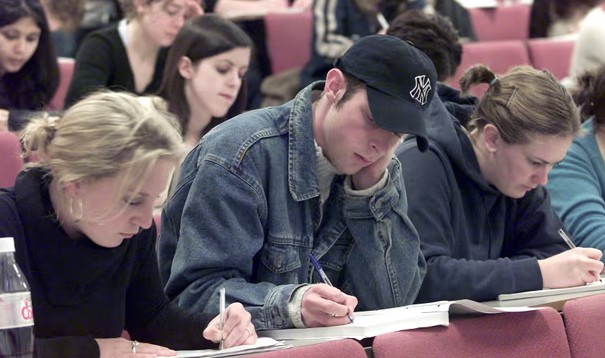University students in England are seeing less spent on their education than at any time since their tuition fees were tripled in 2012, according to new analysis by the Institute for Fiscal Studies.
According to the IFS, students are receiving even less than they were in 1990 as the government badly underestimated the effect of high inflation since it decided to freeze domestic undergraduate tuition fees at £9,250 – leading to a steep erosion in university teaching resources. “This does not seem a sensible way to set policy,” the thinktank’s annual report concluded.
By next year, the real-terms value of spending per student will have fallen back to the levels of 2011, when tuition fees were just £3,375 a year and the government contributed much more in teaching grants.
In 2012-13, each undergraduate from England had the equivalent of £11,800 spent annually on teaching resources. But undergraduates in 2024-25 will get just £9,600, according to the IFS.
“This will take it back to the same level as its low point in 2011, just before the increase in fees to £9,000 in 2012 – and, remarkably, 3% lower than in 1990,” the IFS said.
Kate Ogden, a senior research economist at the IFS, said universities in England were “definitely getting less for teaching home students than they used to”, thanks to inflation outstripping the government’s forecasts since the tuition freeze was applied.
The government’s forecasts in 2021 – when it extended the freeze for three years – implied that rising inflation would in effect cut spending on teaching by 6.5%. But the latest forecasts suggest that spending will be hit by twice as much: down by 13% between 2021-22 and 2024-25, equivalent to £1,370 less for each student.
The IFS’s calculations explain why universities in England are seeing a further wave of staff cuts and retrenchments, including department closures. Oxford Brookes University is among the latest to announce it is shutting maths and music courses, and applying cuts to other subjects.


